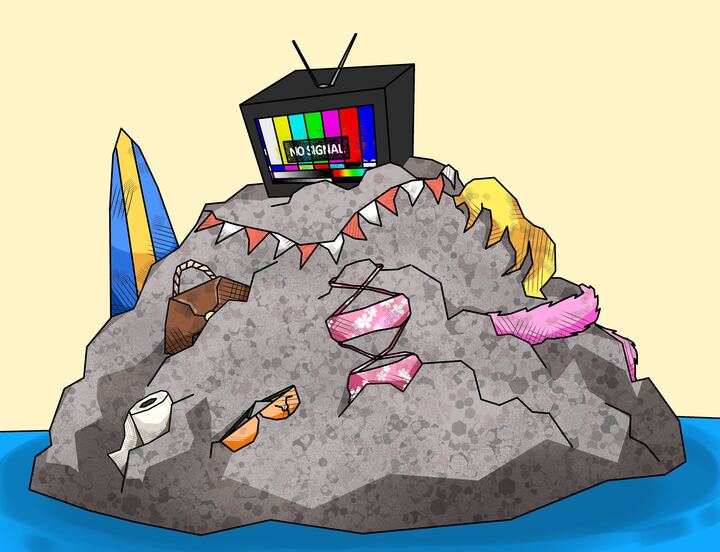Forum | Staff Columnists
Normalize trashy content
 Illustration by Erica Shi
Illustration by Erica Shi “What kind of books do you read?”
Not again. WashU students, as the intellectuals they are, ask questions like this in get-to-know-you conversations like clockwork. I should probably expect it, as “reading” is in my directory of normal, even charming, hobbies. This is a predictable and valid follow-up question, yet I never feel quite prepared. I could list some books I’ve read for class and enjoyed like “Song of Solomon” by Toni Morrison or “Slaughterhouse-Five” by Kurt Vonnegut: intellectual and somewhat truthful. My more socially acceptable favorite books: usually literary fiction, maybe “Writers & Lovers” by Lily King or “Conversations with Friends” by Sally Rooney (is Sally Rooney literary enough?). But this still doesn’t feel like the whole truth. God forbid they ask for my Goodreads.
I’ve had this thought process many, many times. It’s a first-date question not-quite-but-nearly-as-bad-as “Do you play any sports?” Yet it’s also an important one. All of the books I read are a part of my identity; they constitute a big part of my free time and have shaped my worldview. My identity encompasses all of the media I consume, down to the unscholarly novels (e.g. “Daisy Jones and the Six” by Taylor Jenkins Reid; “You, Again” by Kate Goldbeck; “Everything I Know About Love” by Dolly Alderton), daily vlogs, podcasts about celebrity drama, and reality dating shows.
Especially at WashU, where I’m surrounded by very intelligent peers, I often feel like I can’t share these non-scholarly parts of myself. They feel embarrassing and unimpressive, feeding my imposter syndrome. As a woman, I also feel like I’m playing into gender stereotypes — that we live for gossip and spend all of our time reading romances by the pool. I don’t want the poli-sci bros in my class to feel like they have a leg up on me because I didn’t watch endless video essays or read Marx over the summer (by the way, having “The Communist Manifesto” on your nightstand doesn’t make you a god).
This summer, “Love Island USA” Season 6 took the world by storm. The reality dating show where people find love in a tropical villa (where they are stuck and filmed 24/7) went viral, becoming the most popular reality TV show series on all streaming platforms. The show is being talked about everywhere: across social media platforms, the New York Times, Wall Street Journal, and Forbes. Finally, I can share my long-held love for Love Island without shame.
The “trashy” content I enjoy comes alongside the “untrashy” things I consume — the scholarly articles or books I read, “Up First” by NPR, my extracurriculars, the unseemly number of op-eds I read in a week. But none of these things are more important, interesting, or “impressive” than the other. All the books I read and TV I watch come with different benefits.
As a WashU student likely flooded with work, you deserve a show (or a StudLife article) that takes no brain energy to understand. You probably spend a lot of your time reading academic articles or doing whatever STEM kids do. You should be reading a rom-com or sci-fi novel. Or watch a funny TV show, if that’s more your style. People may say that this media “rots your brain,” but in reality, they bring you different perspectives and, ideally, joy. Sometimes, entertainment isn’t trying to be anything other than entertaining, and that’s okay. There should be no shame in enjoying yourself.
